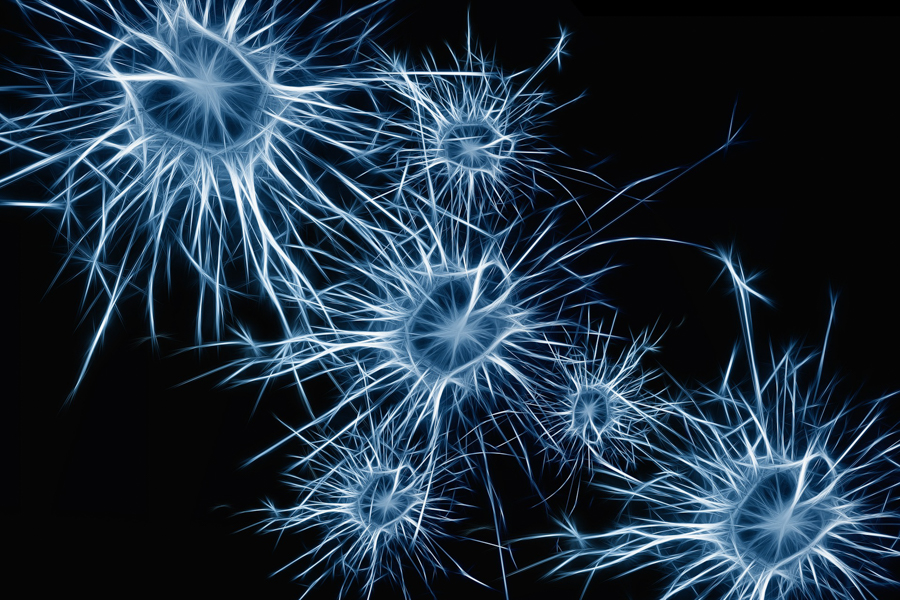Memories could be lost if two key brain regions fail to sync together, study finds
Learning, remembering something, and recalling memories is supported by multiple separate groups of neurons connected inside and across key regions in the brain. If these neural assemblies fail to sync together at the right time, the memories are lost, a new study led by the universities of Bristol and Heidelberg has found.

Bernstein Members involved: Daniel Durstewitz
How do you keep track of what to do next? What happens in the brain when your mind goes blank? Short-term memory relies on two key brain regions: the hippocampus and the prefrontal cortex. The researchers set out to establish how these brain regions interact with one another as memories are formed, maintained and recalled at the level of specific groups of neurons. The study, published in Currently Biology, also wanted to understand why memory sometimes fails.
“Neural assemblies” – groups of neurons that join forces to process information – were first proposed over 70 years ago, but have proved difficult to pinpoint.
Using brain recordings in rats, the research team has shown that memory encoding, storage and recall is supported by dynamic interactions incorporating multiple neural assemblies formed within and between the hippocampus and prefrontal cortex. When the coordination of these assemblies fails, the animals made mistakes.
Dr. Michał Kucewicz, Assistant Professor of Neurology at Gdansk University of Technology, formerly a PhD student at the University of Bristol, and lead author, said: “Our results make potential therapeutic interventions for memory restoration more challenging to target in space and time. On the other hand, our findings have identified critical processes that determine a success or failure in remembering. These present viable targets for therapeutic interventions on the level of neural assembly interactions.”
Matt Jones, Professor of Neuroscience in the School of Physiology, Pharmacology and Neuroscience and Bristol Neuroscience and senior author of the paper, added: “Our findings add to evidence that the neural substrates of memory are more distributed in anatomical space and dynamic across time than previously thought based on the neuropsychological models.”
The next steps for the research would be to modulate neural assembly interactions, either using drugs or via brain stimulation, which Dr. Kucewicz is currently doing in human patients, to test whether disrupting or augmenting them would impair or enhance remembering. The research team presumes the same mechanisms would work in human patients to restore memory functions impaired in a particular brain disorder.




